We are familiar with the working of local and online storage sources like USB and online cloud servers. These types of storage facilitate our work smartly and efficiently. In most cases, we usually do not need to carry heavy systems for file transportation and communications, and can easily manage our routine tasks with such devices and online storage devices.
So if we have such physical and online storage, then what are the best NAS software and why do we need all these? Are these something new and a secure way to store or share data?
All these will be discussed in today’s topic, along with the details of some of the familiar and trusted NAS software to use our data conveniently and securely.
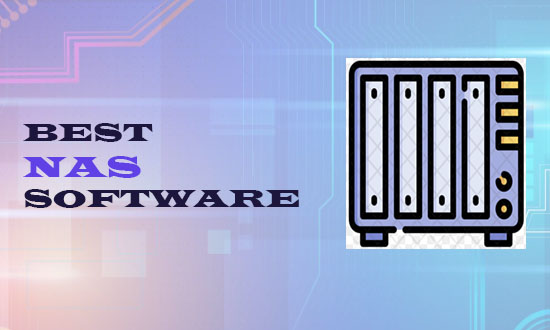
What is NAS Software:
NAS stands for Network Attached Storage. It is a type of storage device attached to a network. So when talking about NAS software, these are the software that run on the network attached storage device or NAS servers. The main purpose of the NAS software is to store and share data on computers that are attached to a network through a NAS server. The only difference between cloud storage and a NAS server is the online and offline data sharing.
Don’t miss to Learn to auto-delete old files from Windows 11
It means you can only use NAS software to store and share data locally through a network within some premises, like an office or a working boundary. Any computer attached to the NAS server can access and use the data locally. Network network-attached computer not only accesses data but can also share and even recover deleted data through NAS software.
Why do we need a NAS Software for Windows and iOS:
As described earlier about the physical memory devices and online storage, why do we need NAS software for data storage and sharing within a network?
The answer is quite simple due to its use and application in small and enterprise-level:
- It is easy to operate and within budget due to limited network access.
- Due to its offline operation, it may be more secure as compared to other online storage facilities.
- You have a secure offline network that works securely within the premises, and data can only be accessed through special software and the computer attached to that network.
- You have the opportunity to access large files, especially media files, and can edit and share with other persons on the network to do their specific job more easily.
- Can host a personal cloud server for your network-attached system.
- You can host server-based, open-source applications such as human resource management, enterprise resource planning applications, etc.
The NAS software is commonly used in large organizations as well as in small office networks for video editing, bookkeeping, email systems, and other file sharing.
Collection of the Best NAS Software for Windows and Linux users:
Keeping in view the features, hardware, backup facilities, and storage. customer support and necessitates of Windows as well as Linux users, I have elaborated some of the best open source and paid NAS software tools for better data management.
1-Rockstor – Linux and BTRFS Powered Storage OS:

As by name, Rockstor is proven to be one of the best NAS software for network storage solutions and data sharing due to its simple interface to handle complex network issues. It is being used in building custom solutions in software and hardware projects, along with the provision of this software for providing large capacity storage to medium and small business solutions.
Prominent features of Rockstor:
- Open source software for NAS and private cloud storage.
- Large capacity and several RAID configurations.
- Protocol support for NFS, SFTP, and SMB
- Integrate with Plex, Open VPN. Own cloud and many others.
2-TrueNAS – Open Source Network Attached Storage System:
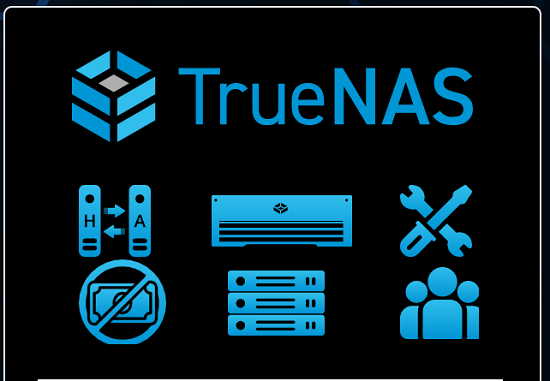
TrueNAS is another highly recommended and most adopted open-source Linux-based NAS software being used by hundreds of companies in more than 200 countries across the globe. It has two versions, one is a small home or business platform, which is usually best for home-based NAS servers, and is totally free. While the other one is the enterprise version, which is fit for professionals. These paid versions have a lot of advanced features to support 256TB of storage and can accommodate more than 20 drives at a time.
Prominent features of TrueNAS:
- Award-winning data storage used by the majority of Fortune 500.
- Multiplatform support other than Windows and Linux.
- Protocol support for FTP, NFS, AFP, SMB, WebDAV, and Rsync.
- Plugins support for Next cloud and Plex Media Server.
3-Amahi – Personal and Home Server Media Software:
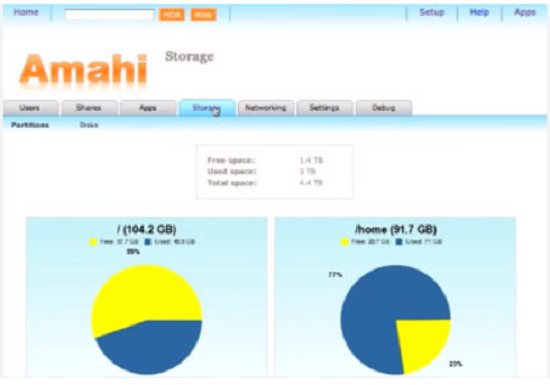
Amahi is ideal for beginners as well as proved to be perfect for experienced users. Due to its user-friendly Windows-based interface, it is famous as ” Home Digital Assistance.” It does not mean that it is for home use only, but you can experience the network PC by managing file access, can setup your own VPN, and can also share private applications with your NAS computers.
Prominent features of Amahi:
- Recommended for both beginners and professionals.
- One can use it as dedicated home servers.
- Native VPN solution.
- Excellent backup options.
4-OpenMediaVault – Linux-based NAS:

Openmediavault (OMV) is another open source NAS software with web web-based interface and is ideal for users who need a turnkey file server over Linux OS with multi-language support and user management. It is recommended for small and home-based businesses for various file-sharing protocols and data backup facilities.
Prominent features of Open Media Vault :
- Easy to set up and reliable due to consistent updates.
- Provide a user-friendly web-based interface.
- Can achieve data backup by using its reliable file servers.
- Supports various plugins to enhance its functionality.
5-Xigma NAS – Open Source BSD Software:
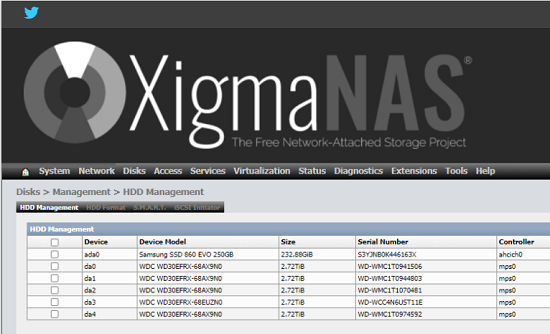
Xigma NAS is open-source software that is available to download in four different file formats and is equally useful for beginner and advanced-level users. The system incorporates SMART technology to provide comprehensive monitoring of storage device health and performance by sending automatic emails to ensure data safety.
Prominent features of Xigma NAS:
- Easy to install and configure.
- File and data sharing is available on multiple platforms, along with Windows.
- It can be installed on a USB, a Hard drive, or even booted from a live location for configuration storage.
- Email reporting, RAID features, along disk encryption.
6- PetaSAN – Open Source Software:
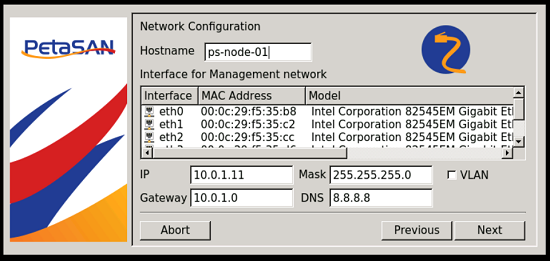
PetaSAN is open-source software for scalability and managing large backup data management. It supports multiple protocols providing users with a wide range of options for their storage needs. This platform accommodates the growing data storage needs by providing block-level replication and a secure environment for storing sensitive data. This platform is usually referred to large organization for data management.
Prominent features of PetaSAN:
- Additional support of community forums for a dedicated business solution.
- High input/output concurrency with large capacity backups.
- Secure management of cloud applications by using Consul identity-based networking.
- Fault-tolerant, Self-healing, and self-adapting system for hassle-free data management.
Other Best NAS Solution for Local and Cloud-based Data Management:
- NetApp NAS ONTAP
- Hitachi NAS Platform
- Synology DiskStation Manager
- Enterprise Storage OS
- EasyNAS
- Nexenta OS
- Uraid
- Netdrive
- Mayanas
- WD My Cloud Home
Conclusion:
Choosing the right NAS software isn’t about picking the “most features” — it’s about finding the one that fits your workflow, budget and skills. Whether you’re a home user storing family photos, or a business safeguarding data, the six options above offer excellent starting points.
NAS is the need of beginners and professionals for a small and large-scale data management solution. Many organizations are being the users of these trusted NAS software. So, try the above elaboration and share your experience in the comments.